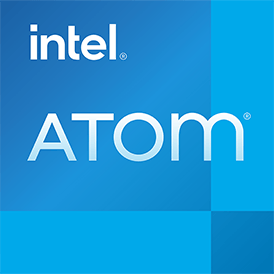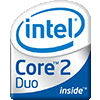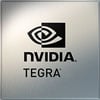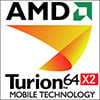
Intel Atom x7-E3950 Benchmark, Test and specs
Last updated:
The Intel Atom x7-E3950 is a 4 core processor. It can handle 4 threads simultaneously and was introduced in Q4/2016. The Intel Atom x7-E3950 is based on the 5. generation of the Intel Atom series and requires a mainboard with the socket BGA 1296. The Intel Atom x7-E3950 scores 307 points with one CPU core in the Geekbench 5 benchmark. When using all CPU cores, the result is 1,154 points.

| Name: | Intel Atom x7-E3950 |
|---|---|
| Family: | Intel Atom (108) |
| CPU group: | Intel Atom x3/x5/x7 (9) |
| Architecture: | Cherry Trail |
| Segment: | Mobile |
| Generation: | 5 |
| Predecessor: | -- |
| Successor: | -- |
CPU Cores and Base Frequency
The 4 CPU cores of the Intel Atom x7-E3950 clock with 1.60 GHz (2.00 GHz). The number of CPU cores and the clock frequency of the processor are largely responsible for the overall performance.
| CPU Cores / Threads: | 4 / 4 |
|---|---|
| Core architecture: | normal |
| Cores: | 4x |
| Hyperthreading / SMT: | No |
|---|---|
| Overclocking: | No |
| Frequency: | 1.60 GHz |
| Turbo Frequency (1 Core): | 2.00 GHz |
| Turbo Frequency (4 Cores): | -- |
Internal Graphics
With the Intel HD Graphics 505, the Intel Atom x7-E3950 has an build in graphic solution. It has 18 SM processors, which have a total of 144 texture shaders. The iGPU not only enables games, but also significantly accelerates video playback.
| GPU name: | Intel HD Graphics 505 |
|---|---|
| GPU frequency: | 0.50 GHz |
| GPU (Turbo): | 0.65 GHz |
| Compute units: | 18 |
| Shader: | 144 |
| Hardware Raytracing: | No |
| Release date: | Q3/2016 |
| Max. displays: | 3 |
|---|---|
| Generation: | 9 |
| Direct X: | 12 |
| Technology: | 14 nm |
| Max. GPU Memory: | 8 GB |
| Frame Generation: | No |
Hardware codec support
Processors that have an integrated graphics can play videos faster and more efficiently. This can have a positive effect on the battery life of notebooks, for example.
| h265 / HEVC (8 bit): | Decode / Encode |
|---|---|
| h265 / HEVC (10 bit): | Decode |
| h264: | Decode / Encode |
| VP8: | Decode / Encode |
| VP9: | Decode |
| AV1: | No |
|---|---|
| AVC: | Decode / Encode |
| VC-1: | Decode |
| JPEG: | Decode / Encode |
Memory & PCIeThe Intel Atom x7-E3950 supports up to 8 GB memory in up to 4 (Quad Channel) memory channels. This results in a maximum memory bandwidth of 38.4 GB/s. |
|
| Memory type: | Memory bandwidth: |
|---|---|
| LPDDR3-1866 | 38.4 GB/s |
| Max. Memory: | 8 GB |
| Memory channels: | 4 (Quad Channel) |
| ECC: | Yes |
| PCIe: | 2.0 x 6 |
| PCIe Bandwidth: | 3.0 GB/s |
Thermal ManagementWith the TDP, the processor manufacturer specifies the cooling solution required for the processor. The Intel Atom x7-E3950 has a TDP of 12 W. |
|
|---|---|
| TDP (PL1 / PBP): | 12 W |
| TDP (PL2): | -- |
| TDP up: | -- |
| TDP down: | -- |
| Tjunction max.: | 110 °C |
Technical details
The Intel Atom x7-E3950 has a 2.00 MB large cache. The processor is manufactured in 14 nm. Modern production increases the efficiency of the processor.
| Technology: | 14 nm |
|---|---|
| Chip design: | Monolithic |
| Socket: | BGA 1296 |
| L2-Cache: | -- |
| L3-Cache: | 2.00 MB |
| AES-NI: | Yes |
| Operating systems: |
| Virtualization: | VT-x, VT-x EPT |
|---|---|
| Instruction set (ISA): | x86-64 (64 bit) |
| ISA extensions: | SSE4.1, SSE4.2 |
| Release date: | Q4/2016 |
| Release price: | 57 $ |
| Part Number: | -- |
| Documents: | Technical data sheet |
Rate this processor
Benchmark results

The benchmark results for the Intel Atom x7-E3950 have been carefully checked by us. We only publish benchmark results that have been created by us or that have been submitted by a visitor and then checked by a team member. All results are based on and fullfill our benchmark guidelines.
Geekbench 5, 64bit (Single-Core)
Geekbench 5 is a cross plattform benchmark that heavily uses the systems memory. A fast memory will push the result a lot. The single-core test only uses one CPU core, the amount of cores or hyperthreading ability doesn't count.

|
Intel Pentium E2210
2C 2T @ 2.20 GHz |
||

|
Intel Celeron N3450
4C 4T @ 2.20 GHz |
||

|
Intel Core2 Duo E6420
2C 2T @ 2.13 GHz |
||
|
|
Intel Atom x7-E3950
4C 4T @ 2.00 GHz |
||

|
Intel Celeron 900
1C 1T @ 0.80 GHz |
||

|
MediaTek Helio G80
8C 8T @ 2.00 GHz |
||

|
Intel Atom C3808
12C 12T @ 2.00 GHz |
||
Geekbench 5, 64bit (Multi-Core)
Geekbench 5 is a cross plattform benchmark that heavily uses the systems memory. A fast memory will push the result a lot. The multi-core test involves all CPU cores and taks a big advantage of hyperthreading.

|
Intel Core i5-3317U
2C 4T @ 1.70 GHz |
||

|
AMD Athlon II X4 620
4C 4T @ 2.60 GHz |
||

|
Intel Core 2 Quad Q8400
4C 4T @ 2.66 GHz |
||
|
|
Intel Atom x7-E3950
4C 4T @ 1.60 GHz |
||

|
MediaTek Helio X20
10C 10T @ 2.10 GHz |
||

|
Intel Core M-5Y10a
2C 4T @ 1.60 GHz |
||

|
Intel Celeron G1830
2C 2T @ 2.80 GHz |
||
Geekbench 6 (Single-Core)
Geekbench 6 is a benchmark for modern computers, notebooks and smartphones. What is new is an optimized utilization of newer CPU architectures, e.g. based on the big.LITTLE concept and combining CPU cores of different sizes. The single-core benchmark only evaluates the performance of the fastest CPU core, the number of CPU cores in a processor is irrelevant here.

|
Intel Atom x6414RE
4C 4T @ 1.50 GHz |
||

|
Samsung Exynos 7884
8C 8T @ 1.60 GHz |
||

|
AMD GX-222GC
2C 2T @ 2.40 GHz |
||
|
|
Intel Atom x7-E3950
4C 4T @ 2.00 GHz |
||

|
MediaTek Helio X20
10C 10T @ 2.10 GHz |
||

|
Intel Core i3-2375M
2C 4T @ 1.50 GHz |
||

|
Intel Core i3-2377M
2C 4T @ 1.50 GHz |
||
Geekbench 6 (Multi-Core)
Geekbench 6 is a benchmark for modern computers, notebooks and smartphones. What is new is an optimized utilization of newer CPU architectures, e.g. based on the big.LITTLE concept and combining CPU cores of different sizes. The multi-core benchmark evaluates the performance of all of the processor's CPU cores. Virtual thread improvements such as AMD SMT or Intel's Hyper-Threading have a positive impact on the benchmark result.

|
Samsung Exynos 7884
8C 8T @ 1.60 GHz |
||

|
Intel Pentium G2010
2C 2T @ 2.80 GHz |
||

|
NVIDIA Tegra X1
8C 8T @ 2.00 GHz |
||
|
|
Intel Atom x7-E3950
4C 4T @ 1.60 GHz |
||

|
MediaTek Helio G35
8C 8T @ 2.30 GHz |
||

|
MediaTek MT8176
6C 6T @ 2.00 GHz |
||

|
Intel Pentium 3825U
2C 4T @ 1.90 GHz |
||
Cinebench R20 (Single-Core)
Cinebench R20 is the successor of Cinebench R15 and is also based on the Cinema 4 Suite. Cinema 4 is a worldwide used software to create 3D forms. The single-core test only uses one CPU core, the amount of cores or hyperthreading ability doesn't count.

|
Intel Celeron N3450
4C 4T @ 2.20 GHz |
||

|
Intel Celeron N3350
2C 2T @ 2.40 GHz |
||

|
AMD Athlon 5350
4C 4T @ 2.05 GHz |
||
|
|
Intel Atom x7-E3950
4C 4T @ 2.00 GHz |
||

|
AMD A8-4500M
4C 4T @ 2.80 GHz |
||

|
Intel Celeron N2820
2C 2T @ 2.39 GHz |
||

|
AMD Turion 64 MK-36
1C 1T @ 2.00 GHz |
||
Cinebench R20 (Multi-Core)
Cinebench R20 is the successor of Cinebench R15 and is also based on the Cinema 4 Suite. Cinema 4 is a worldwide used software to create 3D forms. The multi-core test involves all CPU cores and taks a big advantage of hyperthreading.

|
AMD A8-4500M
4C 4T @ 2.80 GHz |
||

|
AMD A9-9425
2C 2T @ 3.10 GHz |
||

|
Intel Core m3-6Y30
2C 4T @ 1.80 GHz |
||
|
|
Intel Atom x7-E3950
4C 4T @ 1.60 GHz |
||

|
AMD A6-5400K
2C 2T @ 3.80 GHz |
||

|
AMD A6-9225
2C 2T @ 2.60 GHz |
||

|
Intel Core m3-7Y30
2C 4T @ 2.00 GHz |
||
iGPU - FP32 Performance (Single-precision GFLOPS)
The theoretical computing performance of the internal graphics unit of the processor with simple accuracy (32 bit) in GFLOPS. GFLOPS indicates how many billion floating point operations the iGPU can perform per second.

|
AMD A4-3400
AMD Radeon HD 6410D @ 0.60 GHz |
||

|
AMD A4-3420
AMD Radeon HD 6410D @ 0.60 GHz |
||

|
Intel Xeon E3-1265L v3
Intel HD Graphics (Haswell GT1) @ 1.20 GHz |
||
|
|
Intel Atom x7-E3950
Intel HD Graphics 505 @ 0.65 GHz |
||

|
Qualcomm Snapdragon 636
Qualcomm Adreno 509 @ 0.72 GHz |
||

|
Intel Pentium G3258
Intel HD Graphics (Haswell GT1) @ 1.15 GHz |
||

|
AMD A4-4020
AMD Radeon HD 7480D @ 0.72 GHz |
||
Estimated results for PassMark CPU Mark
Some of the CPUs listed below have been benchmarked by CPU-monkey. However the majority of CPUs have not been tested and the results have been estimated by a CPU-monkey’s secret proprietary formula. As such they do not accurately reflect the actual Passmark CPU mark values and are not endorsed by PassMark Software Pty Ltd.

|
Intel Core 2 Quad Q9450
4C 4T @ 2.66 GHz |
||

|
AMD Phenom II X4 820
4C 4T @ 2.80 GHz |
||

|
AMD A6-3410MX
4C 4T @ 2.30 GHz |
||
|
|
Intel Atom x7-E3950
4C 4T @ 1.60 GHz |
||

|
AMD Athlon II X4 635
4C 4T @ 2.90 GHz |
||

|
Intel Pentium 4405U
2C 4T @ 2.10 GHz |
||

|
AMD Athlon II X4 630
4C 4T @ 2.80 GHz |
||
Cinebench R15 (Single-Core)
Cinebench R15 is the successor of Cinebench 11.5 and is also based on the Cinema 4 Suite. Cinema 4 is a worldwide used software to create 3D forms. The single-core test only uses one CPU core, the amount of cores or hyperthreading ability doesn't count.

|
Intel Celeron J1800
2C 2T @ 2.58 GHz |
||

|
Intel Celeron N2840
2C 2T @ 2.58 GHz |
||

|
Intel Pentium N3540
4C 4T @ 2.66 GHz |
||
|
|
Intel Atom x7-E3950
4C 4T @ 2.00 GHz |
||

|
Intel Atom x5-Z8550
4C 4T @ 2.40 GHz |
||

|
Intel Atom x7-Z8700
4C 4T @ 2.40 GHz |
||

|
Intel Pentium N3530
4C 4T @ 2.58 GHz |
||
Cinebench R15 (Multi-Core)
Cinebench R15 is the successor of Cinebench 11.5 and is also based on the Cinema 4 Suite. Cinema 4 is a worldwide used software to create 3D forms. The multi-core test involves all CPU cores and taks a big advantage of hyperthreading.

|
AMD Athlon II X2 340
2C 2T @ 3.60 GHz |
||

|
Intel Celeron N3150
4C 4T @ 2.08 GHz |
||

|
AMD A4-3400
2C 2T @ 2.70 GHz |
||
|
|
Intel Atom x7-E3950
4C 4T @ 1.60 GHz |
||

|
Intel Celeron 2981U
2C 2T @ 1.40 GHz |
||

|
Intel Celeron 2980U
2C 2T @ 1.40 GHz |
||

|
AMD Athlon 5150
4C 4T @ 1.60 GHz |
||
Benchmarks

Geekbench 5 (SC)
2,488 entries
2,488 entries

Geekbench 5 (MC)
2,461 entries
2,461 entries

Geekbench 6 (SC)
1,755 entries
1,755 entries

Geekbench 6 (MC)
1,703 entries
1,703 entries

Cinebench R20 (SC)
656 entries
656 entries

Cinebench R20 (MC)
604 entries
604 entries

FP32 SP (iGPU)
2,042 entries
2,042 entries

PassMark CPU-Mark
2,392 entries
2,392 entries

Cinebench R15 (SC)
1,106 entries
1,106 entries

Cinebench R15 (MC)
1,101 entries
1,101 entries
Popular comparisons
back to index




